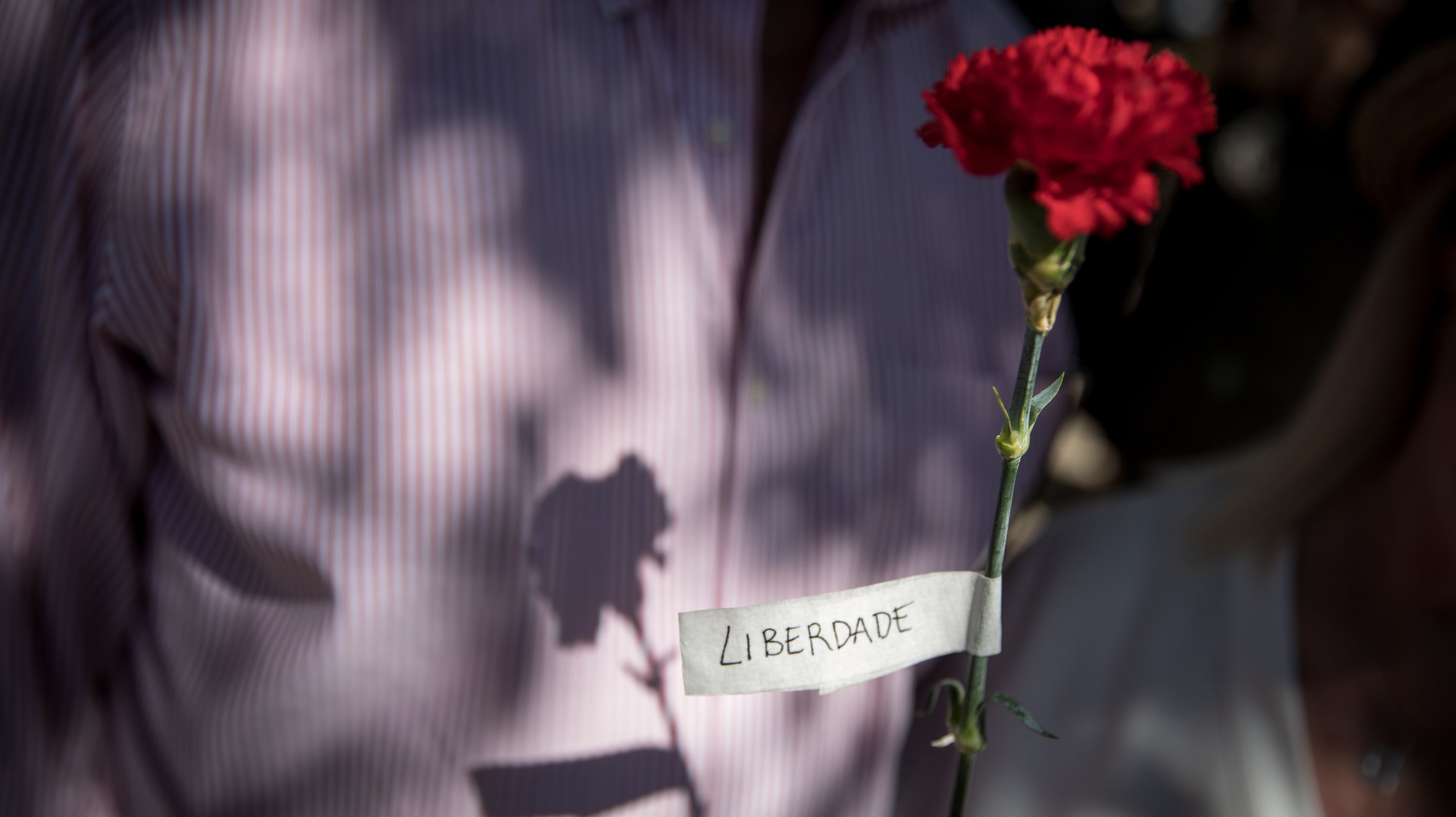The new work of the Teatro de Pesquisa Commune is titled 23 seconds and focuses on five political prisonerswhich met, in the first half of the 1950s, in a common cell, and premieres on Thursday, in Lisbon.
Directed by João Mota, 23 seconds it’s a Unpublished text, based on real events.written by Miguel Falcão, a young playwright that João Mota, artistic director of the company based in Praça de Espanha, in Lisbon, has known since the author was his student at the Escola Superior de Teatro e Cine, said João Mota, in a interview with Lusa.
When it is 50 years since April 25 and 52 since the founding of the company, “nothing better” to celebrate the two anniversaries than “a Portuguese play, by a young author, that talks about something very important.”
The work talks about the dictatorship of the Estado Novo and the time before April 25, observed João Mota, adding that it was a time in which the Commune “knows very well what it was like,” since it has been two years. older than he was on April 25, 1974.
“We talk a lot about April 25, sometimes, but we forget what happened before,” or “Everyone knows what fascism and Salazar were, but they forget about those who really fought hard against the dictatorship” of the New State, he stressed.
We talk about the men and women who had to flee Portugal – “what happened to Mário Soares himself, who had to leave” – but about those who stayed and fought “little is said”, considered the director.
Men and women “arrested and tortured” for reasons as simple as belonging to a union or listening to a banned radio station. Reasons covered in 23 secondsthat “reports a leak, with personal data of the detainees.”
Without specifying the Peniche Fort prison, because he cannot “forget Caldas da Rainha, Aljube, in Lisbon” or “Tarrafal, in Cape Verde”, João Mota also highlighted the importance of the text putting five political prisoners on stage, all with different personalities. and life stories.
An activist of a political party, a miner, one arrested for reading poetry, another for listening to a banned radio station and another who, after becoming a widow, participated in a strike where the protesters held a sign that said “Hunger, Hunger” are the five protagonists of the work.
Two guards and a narrator, granddaughter of one of the prisoners in the play and who remembers what she heard her grandfather tell about his time in prison in the early 1950s, complete the characters of 23 seconds.
the action of 23 seconds happens in retrospective scene and, while the narrator remembers the stories her grandfather told her, she tells them on stage.
In addition to the memory of his granddaughter, “who still lives today with the shadow and weight of what her grandfather told her,” there are photographs that portray the moments to which the action refers, said João Mota.
“The few memories that exist today among the youngest before April 25 are that more than three people could not meet to talk, there was a license to use a lighter and anyone who did not have one and who was caught was detained in the theater. We did not have freedom. and there was enormous censorship… But no one talks about the prisoners,” said João Mota.
Nobody talks about “those women and those men. “It was not just men who fought and died so that April 25 could be celebrated with arms.”he observed, highlighting that the action of the play takes us back to the years 1954/1955.
“And if there had not been that struggle, which already existed before the Colonial War… There was already that ferment that fueled the hypothesis of overthrowing a dictatorship,” he highlighted.
The struggle of women and the suffering of the families of political prisoners is another of the themes that runs through the work, which talks about the death of a woman, who is detained and dies at the hands of torturers.
“And her in-laws blame her husband for what happened to their daughter, preventing her son-in-law [voltar a] see the son And the granddaughter bears this,” said João Mota.
João Mota insisted that “it is necessary not to whitewash history or let memory be erased.”
“This is how the dictatorship was here for 48 years, and it left many traces. People have forgotten and this piece serves as a reminder. “Not to forget,” concluded the actor and director who, months away from turning 82, highlights that he lived 31 years under a dictatorship, “to which he does not want to return.”
On stage until June 16, 23 seconds It is the 159th production of the Teatro Comuna company.
The premiere is scheduled for 9 p.m. and the show will have performances on Wednesdays and Thursdays at 7 p.m., Friday and Saturday at 9 p.m., and Sunday at 4 p.m.
Hugo Franco, Gonçalo Botelho, Paulo Lajes, Rogério Vale, Francisco Almeida, Miguel Sermão, Carlos Catalão and Maria Ana Filipe will perform. With the stage assistance of Patrícia Neves, 23 seconds It has lighting design by Paulo Graça.
Source: Observadora
